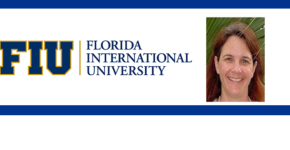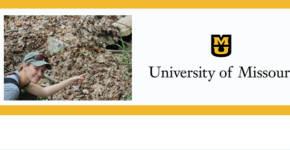Category: Ecology
-

Elizabeth Anderson, Florida International University – Dams Are Changing Amazonian Rivers
New dams in the Amazon could threaten ecosystems. Elizabeth Anderson, assistant professor in the department of earth & environment at Florida International University, describes the challenges of new dams changing the flow of rivers in the basin. I received my PhD from the Odum School of Ecology at the University of Georgia. I’m originally from…
-

Rene Price, Florida International University – Salt Water Intrusion in the Everglades
Fight fire with fire…and water with water? Rene Price, professor of earth and environment at Florida International University, explores how to stop salt water intrusion in the Everglades with more water. Dr. Price’s research interests include the general areas of hydrogeology, ecohydrology and low-temperature aqueous geochemistry in carbonate terrains. More specifically, her research involves using chemical…
-

Fred Chen, Wake Forest University – Synthetic Rhino Horns
Can synthetic rhino horns stop the scourge of poaching? Fred Chen, associate professor of economics at Wake Forest University, discusses this possible solution. Wake Forest economist Fred Chen takes an interdisciplinary approach to a variety of subjects in his research, applying foundational economic concepts to study topics like animal conservation, epidemiology or biology. Much of…
-

Julianna Jenkins, University of Missouri – Songbirds Face Risks Leaving The Nest
Not all birds face the same risks when leaving the nest. Julianna Jenkins, post-doctoral research fellow at the University of Missouri, explores the survival rates of two types of birds as they venture on their own. My dissertation work focused on understanding the transition between the nesting and postfledging life stages of Neotropical migrant songbirds…
-

Sasha Dall, University of Exeter – Genes as Cues for Development
What do your genes say about you? Sasha Dall, Senior Lecturer in Mathematical Ecology at the University of Exeter, examines how genotype and local environment work together during development. The primary aim of my research is to explore how animals cope with the unexpected opportunities and dangers they face in their day-to-day lives. To this…
-

John Sivey, Towson University – Safeners in Herbicides
The use of herbicides is widespread, but we don’t know the whole story. John Sivey, assistant professor of chemistry at Towson University, is looking into what happens to these chemicals after they are applied. John Sivey (Sĭ’-vee) is the Jess and Mildred Fisher Endowed Professor of Chemistry at Towson University. Professor Sivey’s research group investigates the…
-

Amy Welsh, West Virginia University – Bobcat Populations
How do you track the population of an elusive wild animal? Amy Welsh, assistant professor of wildlife and fisheries at West Virginia University, explains her research into tracking bobcat populations in West Virginia. A winding path brought me to the field of conservation genetics and I have always enjoyed the journey. I grew up in…
-

Aron Stubbins, UGeorgia – Permafrost Melt Water Testing
Testing the melting permafrost of the Arctic is helping researchers learn more about climate change. Aron Stubbins, associate professor at the University of Georgia’s Skidaway Institute of Oceanography, traveled to Siberia to conduct his experiments. Aron Stubbins studied Marine Biology at the University of Newcastle receiving a BSc (Hons) in 1998. Aron remained at the…
-

Upmanu Lall, Columbia University – Futuristic Irrigation
We all need water! Upmanu Lall, professor of engineering at Columbia University, explores the future of irrigation. Upmanu Lall is director of the Columbia Water Center ,and the Alan and Carol Silberstein Professor of Engineering at Columbia University. He has broad interests in hydrology, climate dynamics, water resource systems analysis, risk management and sustainability. He is motivated…

